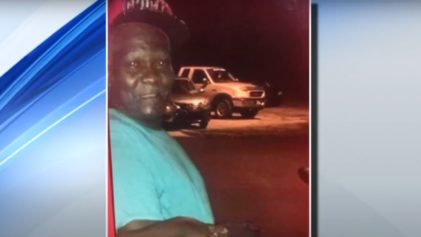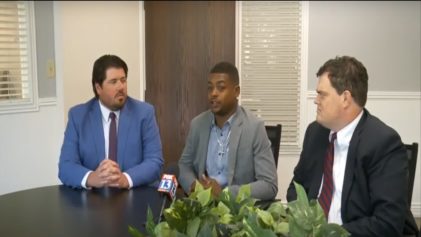
These were the harsh words of an older friend of mine from my neighborhood in Mombasa, Kenya. He had just walked out of his home and was watching a news story about the tension between Black Americans and police officers in the States. During our discussion, he noted how, while generally supporting public safety, he didn’t understand why there were so many instances of officers killing people. Equally, it was unfathomable that in many instances, the shootings were caught on camera and the officers were still not arrested.
In my recent and also past discussions with various people from across the continent, I’ve come across a number of opinions regarding the issue of police brutality in America. The thoughts on this issue ranged from noting the hypocrisy in America’s global image of being the protector of human rights, to some who felt that there must be some kind of conspiracy taking place due to the recent uptick in such incidents. And finally there are a small minority of people in Africa who believe that in some way, police officers are validated in these circumstances, due to what they perceive as the inherently violent nature of Black people in America.
The first group generally feels that the police violence against Blacks mirrors much of America’s foreign policy against different people in the world, ranging from the war in Vietnam, to contemporary conflicts in Iraq and Afghanistan. What many Americans should realize is that the United States is held up as the global embodiment of freedom and the protection of human rights. And this fact is promoted in the international media and through entertainment, which is largely slanted towards the embellishment of American and Western values.
A number of people I’ve spoken to on the issue share the same sentiment as many Black Americans, which is— How can the people who are supposed to protect you be the same ones who are harassing your people and violating your rights?
This sentiment is one which arose after President Obama’s visit to Kenya. While many people applauded his comments and his critique regarding the issues of corruption in Africa, many also noted how there should be more done about the issue of police brutality in America. Many academics and those familiar with the Civil Rights era of the 60s and 70s will also point out that on the surface, there has been progression, but in reality, nothing much has changed. This point was referenced by individuals whom I know, along with opinion articles in various African journals.
The next general observation was the notion of there being some form of conspiracy by various forces to increase racial strife between Blacks and whites. A good number of people feel that such incidents are being perpetrated to bring about open conflict between Blacks and whites at a national level. Most Americans would probably dismiss such ideas because for one, it is contradictory to the concept that we as Americans are united and support each other and such issues are not possible in the supposed, greatest nation on earth. Secondly, such a conspiracy would require the participation of officials at the highest level of government, and this by most accounts would be highly illogical.
However, to those living on the African continent, the notion of open conflict between two distinct communities is very possible and in some regions, common. Conflicts such as the Hutu-Tutsi rivalry in Rwanda, Ethiopia-Eritrea, the issues of Central African Republic, and the decades long problems of the Democratic Republic of the Congo show that such issues are not merely conspiracies. It can be noted historically that many of these conflicts were the direct result of various plans and infringement of rights perpetrated by tribal and ethnic leaders in power, against other groups whom they viewed as rivals and threats to their position. Thus, when someone on the African continent sees an increase of white police officers killing unarmed Blacks in America and the system still protecting these officers, it reminds them of incidents which have happened in various places in the past and even the present.
The final, general opinion, among a small majority of people whom I have come across, is that in some way, the police are validated in their use of force against Black Americans. This sentiment was expressed because they felt that Black people in America were inherently violent, thus if a police officer were to encounter one of us, the use of violence would be necessary.
However, their logic was this— the overwhelming majority of Africans have never met a Black American, thus their perception of Black Americans is based upon the media and entertainment. Yes, those same rap videos, movies and the negative images of Black people in America, generally go global and since most people will never meet a Black American in their life, this is how they learn about us.
But in general terms, many people who felt this way would then discuss how the media can be wrong and in fact, some noted how their depiction of Africans isn’t accurate at all. One friend of mine even noted that while he did feel that way before but then mentioned “but then I met you and you’re not like that at all, so I figured that can’t be right.”
Upon reflection, one individual noted how if he were driving or walking down the street, a police officer would have no idea if he were Kenyan, Nigerian, Eritrean or Senegalese. A racist officer would see a Black person and that would be the beginning of the story.
Overall, the observation of many Africans whom I have come across believe the issue of police brutality against Blacks in America is a major problem. In fact, a good number of people feel this is an issue, which if allowed to fester, will become a major fissure in the fabric of America.
What I found equally interesting was that the thoughts and opinions of Africans generally reflects that of Black Americans. Finally, as we add more names to the list of unarmed Blacks being killed by police, America should know one thing— the world is watching.
The same police dash cam videos and images that show officers killing unarmed people and are shown on the local 6 o’clock news, are also shown on news stations around the world. Those same articles which discuss the issue of police violence against Blacks, are reprinted in newspapers and magazines around the world.
And when you try to lecture others about the problems within their country, know that one should fix their own home before pointing at others.


